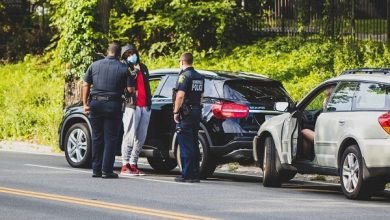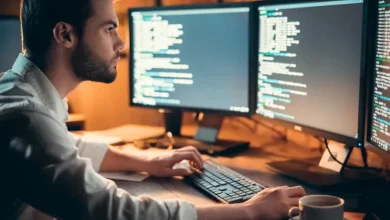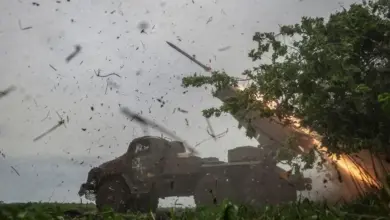How Does a Protection Order Work?
A protection order is a legal order issued by a court that requires the abuser to stay away from the victim and have no contact with them. If the abuser violates the protection order, they can be arrested and prosecuted.
Legislation passed by the Indiana General Assembly in 2009 mandated that all courts in the state participate in the Protection Order Registry. Using the Indiana Data and Communication System (IDACS), the State Police and the FBI’s National Crime Information Center are connected via the Indiana Protection Order Registry when Indiana courts issue protection and no-contact orders (NCIC). All relevant law enforcement agencies are instantly alerted when a protection, no-contact, or restraining order against workplace violence is issued, changed, or revoked. Here are some frequently asked questions about how a protection order works.
Is it mandatory if a form’s language is included in its instructions?
The cover sheet must be included on the first page of any order of protection or restraining order against workplace violence, no-contact order, or order for child protection. The cover page information assures that orders from Indiana are accorded full faith and credit in all other states. The I.C. 34-26-5-3 (c) form is required to provide disqualifiers for firearms and warnings of criminal penalties.
What kind of help can the clerk provide to someone who wants a protection order?
Under I.C. 34-26-5-3 (d), the Clerk or a subcontractor may provide petitioner assistance, including distributing petitions and protective order forms; educating petitioners on court procedures; referring petitioners to victim services and advocates; answering non-legal questions about the completion of petitions; and providing petitioner assistance.
Who can request a protection order?
A petition must contain evidence of domestic or familial abuse, stalking, a sex offense (including child enticement), or harassment to be lawfully filed. People can also ask for help from child protection if they have been hurt by domestic violence, stalking, sex crimes, harassment, or sexual grooming because of abuse.
What is considered family or domestic violence?
At least one of the following things can be considered domestic or family violence when done by a family member:
- Doing something or threatening to do something terrible to a family member or someone who lives in the same house.
- Physical violence threatened against a family member or household member
- Using force is using force or the threat of pressure to get a family member or household member to have a sexual encounter.
- Adopting a non-owned animal to intimidate, coerce, harass, or terrify a member of your family or household is a bad idea.
Do protective orders apply to anyone?
A protective order can be asked for from a judge if the respondent is a family or household member who has been violent toward the petitioner or their family, if the respondent has stalked the petitioner or had repeated contact with the petitioner’s child to get the child ready for sexual activity, or if the respondent has repeatedly harassed the petitioner.
Unless the respondent explicitly requests otherwise, what remedies may be awarded ex parte and without a hearing?
The court prohibits the defendant from visiting the petitioner’s residence, school, workplace, and certain family members. In addition, the respondent is not permitted to visit sites frequented by the petitioner’s family or home. The responder may dispute ex parte orders in court.
The petitioner may be granted sole custody of any animal owned by the respondent, a minor child of either party, or any other member of the petitioner’s immediate family. The court may ban any of the following activities or actions the respondent may take to damage or harm an animal: A court may also evict the respondent from the petitioner’s residence, regardless of the petitioner’s property ownership. Even if the petitioner does not own a home, a car, or other essential personal belongings, the court may rule that both parties acknowledge these items. If the petitioner and any named person or family member are in danger, the court may order more help.
What kind of relief may be granted following a notice and hearing process?
The court may compel the respondent to pay attorney fees, rent or mortgage payments, child support, medical expenditures, counseling fees, shelter fees, or repair charges. A court may order that the defendant not have access to firearms, ammunition, or other dangerous weapons; a court may order that they be fitted with a GPS tracking device and compelled to cover the costs associated with its use. The court may also let the petitioner and the respondent know the exact location for any reason.
Which court should have jurisdiction over this case?
Protective orders should only be imposed when the person concerned is in danger. After speaking with the clerk and considering local restrictions, a judge must decide whether to transfer each petition to a different court in the same county or another county in Indiana for further review. Unless the petition is solely based on harassment, a judge in the county where an order is sought must issue an ex-parte protection order before transferring the petition to another court. The order should be given immediately.
A protective order might affect parenting time and support if young children are involved. The court that issued the order establishing parenting time and child support should, if feasible, review the petition on the same day it is filed. A judge in the county where the protection order case is filed should promptly consider the petition and issue an ex-parte order if the court with jurisdiction over the minor children is in a different county. A hearing may then be convened in the opposing county. A petitioner seeking a protection order against a child respondent may file an ex parte petition with any court of record. The court has the authority to move a planned hearing to a court with jurisdiction over juveniles.
Suppose you are a victim of domestic violence. In that case, hiring a professional domestic violence attorney in Indianapolis who will provide legal representation of the highest caliber and expertise for your case is crucial. A lawyer will work with you to obtain a protection order and make sure that it is enforced. They will also represent you in court if the abuser violates the order.
















